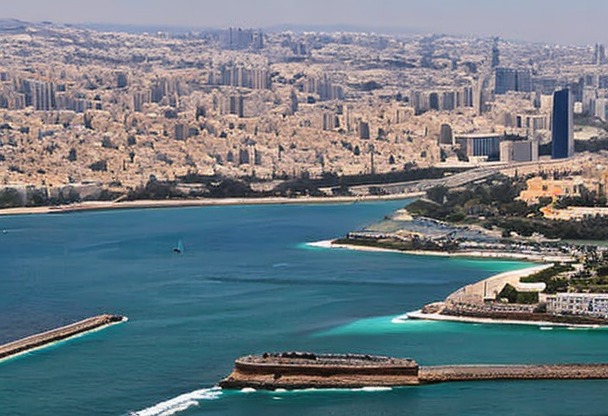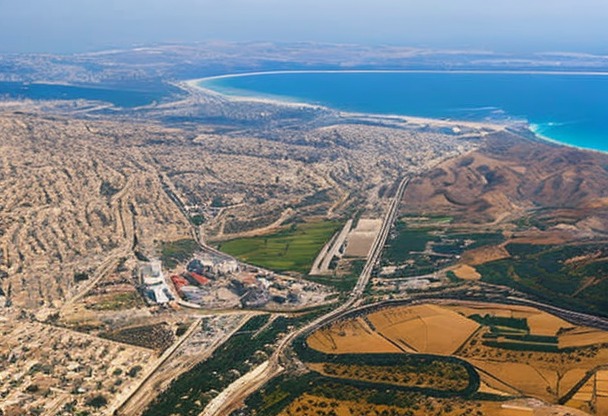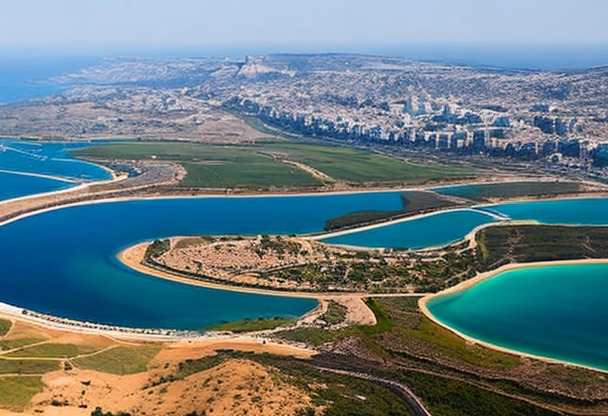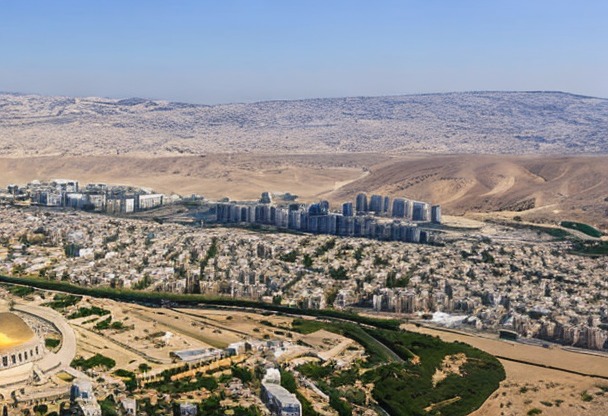WHEN TO TRAVEL TO Israel
Choosing the right time for your trip to Israel can make all the difference. It's important to consider weather elements, seasonal events and busy tourist periods to maximize your travel experience.

Location
Climate
Seasonal temperatures and climate
Israel's climate is Mediterranean and there are four main seasons:- Spring (March-May): Temperatures are mild and pleasant, averaging between 15 and 25°C.
- Summer (June-September): The heat gradually sets in, with temperatures reaching up to 40°C in some areas.
- Autumn (October-November): The weather cools slightly, with average temperatures around 20-25°C.
- Winter (December-February): Temperatures drop to between 10 and 20°C, with some precipitation.
Major cultural events
Israel offers a rich calendar of cultural events throughout the year. Here are some of the highlights not to be missed:- Jerusalem Film Festival (July): An international film event featuring Israeli and foreign films in various categories.
- Safed Music Festival (August): A festival of klezmer and jazz music held in the historic town of Safed, with free open-air concerts.
- Feast of Tabernacles or Sukkot (September-October): A Jewish religious festival celebrating the harvest season and commemorating the exodus of the Hebrews from Egypt.
- Tel Aviv International Photography Festival (October-November): An exhibition devoted to contemporary photography, featuring works by Israeli and international artists.
- Hanukkah (December): The "Festival of Lights" celebrates the Maccabees' victory over the Greeks and the purification of Jerusalem's Temple.
Other noteworthy events
In addition to the major events, there are also other cultural events and local traditions in Israel:- Purim (February-March): A Jewish festival celebrating the deliverance of the Jewish people from Persian oppression, with parades and costume parties.
- Pesach (March-April): Passover commemorates the exodus of the Hebrews from Egypt and includes a ritual meal called the Seder.
- Independence Day (May): This day marks the creation of the State of Israel in 1948, and is celebrated with fireworks, concerts and shows.
Public holidays and vacation periods
Public holidays in Israel are mainly related to Jewish religious festivals. It's important to bear in mind that on these holidays, public transport and some tourist sites may be limited or closed. The main religious holidays include:- Rosh Hashanah (September): The Jewish New Year is celebrated with prayers and family feasts.
- Yom Kippur (September): The Day of Atonement is the holiest day in the Jewish calendar, and shops, public transport and most tourist sites are closed.
- Shavuot (May-June): Jewish Pentecost celebrates the giving of the Torah on Mount Sinai. Celebrations include Torah studies and milky meals.
Low and high season periods
There low season in Israel is between December and February, due to the cooler temperatures and lower rainfall. However, this period also offers advantages, such as:- Low accommodation rates
- Fewer tourists at popular sites
- Green landscapes after the winter rains
- Book your accommodation in advance
- Budget more for travel and activities
- Plan your visits around cultural events and public holidays
Insurance

Your credit card does not cover you in all situations, that is whyIt is essential to take out insurance before you leave to avoid any unpleasant surprises. If you need to see a doctor or be hospitalized, in some countries, medical costs are very high and you will then find yourself having to pay several thousand euros.
Our partner Chapka Insurance proposes the contract CAP ASSISTANCE 24/24 with many essential guarantees.


Flights

Your flight has been cancelled or delayed ?
You may be eligible for a compensation of up to €600 ! For this, lawyers are responsible for handling your claim with the airline and are only paid when the reimbursement is effective.
In conclusion, no financial risk for you, only advantages!
Statistics on immigration to Israel
Israel is a land of welcome for many immigrants from all over the world. The reasons for this immigration are diverse: the geopolitical situation in the Middle East, economic opportunities, or cultural and religious links with Judaism. Here are some key figures on immigration to Israel:- By 2020, approximately 21,000 people immigrated to IsraelThis represents a decrease of 24% compared with 2019.
- The main countries of origin were Russia, Ukraine, the USA and France.
- The majority of immigrants (60%) were aged between 18 and 34, indicating a rather young immigration.
The most popular visas in Israel
Foreign nationals generally require a visa to enter and stay in Israel. There are several types of visa, depending on the purpose of stay (tourism, work, study, etc.). Here are the most popular visas in Israel :B/2 tourist visa
This visa is intended for people wishing to stay for a short period (up to 90 days) for tourism, business or family visits. Nationals of many countries can enter Israel without a tourist visa.Temporary Worker Visa B/1
This visa is for foreign workers hired by Israeli employers for a fixed period. They are generally valid for between 12 and 63 months, depending on the sector of employment and the worker's nationality.A/2 student visa
Foreign students wishing to study in Israel must obtain this type of visa. It is valid for the duration of the study program, with the possibility of renewal.Potential immigrant visa A/1
People eligible for the Law of Return, i.e. Jews and their descendants, can obtain this visa to settle in Israel. It enables them to benefit from a simplified and accelerated immigration procedure. Visa applications are generally submitted to Israeli consulates and diplomatic missions abroad. Requirements and deadlines vary according to the type of visa and the applicant's nationality.International tourism figures for Israel
Tourism is a vital sector for the Israeli economy, contributing 6% to the country's GDP. Visit international tourism figures for Israel illustrate the importance of this industry:- In 2019, Israel welcomed 4.55 million international touristsThis represents an increase of 12% compared with 2018.
- The main issuing markets were UNITED STATESthe Francethe Russia, l'Germany and the United Kingdom.
- Tourism revenues reached nearly $7 billion in 2019.


